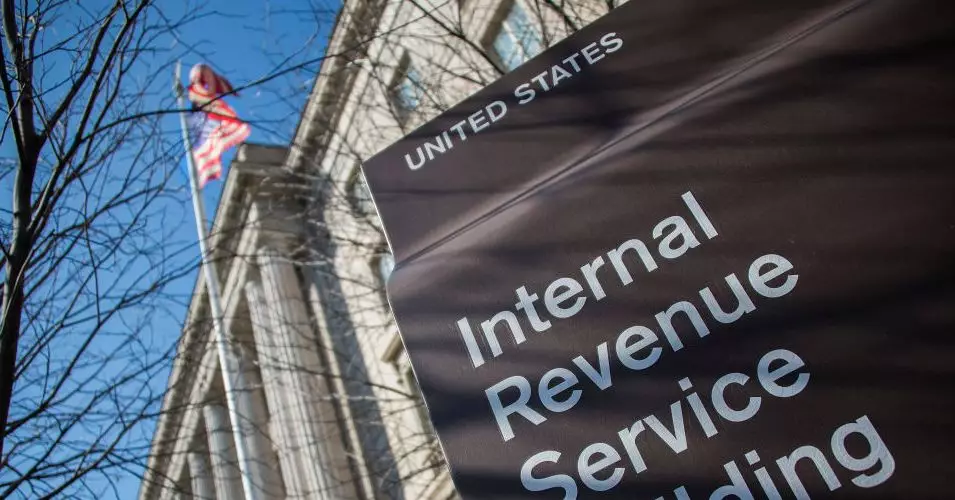In an unprecedented fusion of technology and government, the Department of Government Efficiency (DOGE) has emerged as a powerhouse of innovation spearheaded by Elon Musk. At its core lies a partnership with Palantir Technologies, a company co-founded by tech visionary Peter Thiel, aiming to revolutionize how Internal Revenue Service (IRS) data is accessed and managed. This initiative, chiseled out during a recent hackathon in Washington, D.C., represents not just a shift in data access, but a fundamental rethinking of government efficiency as we know it.
The concept of the “mega API” is at the heart of this endeavor, poised to serve as a comprehensive interface that streamlines access to vast amounts of IRS data. The goal is clear: consolidate taxpayer records, social security numbers, tax returns, and employment information into a singular, cohesive format that enhances both usability and accessibility. The potential implications of this are staggering, as they might lead to a dramatic overhaul of the relationship between citizens and taxation authorities.
Collaborative Innovation: A Hackathon for the Ages
The hackathon, which lasted three invigorating days, gathered not only Palantir’s skilled engineers but also an assemblage of IRS technology professionals. This blend of expertise created a dynamic atmosphere where ideas flowed freely, undeterred by the usual constraints of bureaucracy. Sources described an environment brimming with creativity and collaboration, termed “very unstructured” yet steeped in the excitement of problem-solving.
While the informal nature of the event may raise eyebrows, it is this very unpredictability that often sparks authentic innovation. By circumventing the rigid structures that typically stifle creativity in government projects, this hackathon aimed to catalyze solutions that could drastically improve operational efficiencies at the IRS. The emphasis was on quick, actionable insights—an ethos reminiscent of Silicon Valley’s agile development culture, wherein iteration takes precedence over rigid planning.
Palantir’s Role: Mastering Data Organization
Palantir’s Foundry platform is more than just a tool; it’s a comprehensive ecosystem for data analysis and management. By utilizing advanced AI and creating an “ontology” layer, Foundry can transform vast datasets into streamlined information networks. This means that once IRS data is integrated into this framework, users can employ machine learning to effortlessly query expansive databases, potentially reshaping how tax data is processed and utilized.
However, with great power comes great responsibility. The prospect of allowing access to sensitive taxpayer information raises significant ethical and security concerns. As the initiative progresses, it is essential to address who stands to gain entry into this intricate system. The implications of such access are far-reaching, and it is critical to establish robust protocols that ensure data integrity and privacy.
Impacts on Governance and Ethical Considerations
The implications of a mega API that democratizes access to IRS data could redefine the interaction between citizens and the governmental bodies that oversee them. While such a transformation may herald an era of enhanced efficiency, it also demands a thoughtful examination of privacy laws and ethical standards. The potential risks associated with the misuse of sensitive information can’t be overlooked, warranting vigilance from both technologists and regulators.
Moreover, as former Palantir employees assume vital roles within DOGE, questions arise regarding the potential influence of corporate interests on public governance. Transparency and accountability will be paramount, especially considering the scale of data handling that this partnership entails. There needs to be a delicate balance struck between innovation and the ethical stewardship of public information—an aspect that must not only be advocated for but enshrined in operational practice.
The Vision for Future Data Interoperability
Should the DOGE-Palantir partnership succeed in establishing this mega API, it may pave the way for broader interoperability between various government agencies. The ability to merge datasets from various sources could facilitate more informed decision-making, cross-agency collaboration, and ultimately lead to more effective governance. However, the manner in which this data is utilized will be crucial in either bolstering trust in government systems or sowing seeds of skepticism and concern among the public.
The landscape of technological integration in government is changing rapidly, and as ambitious projects like the IRS mega API come to fruition, they present an invaluable opportunity to reshape the framework of civic engagement in the 21st century. The outcome of this monumental task could ultimately serve as a blueprint for future technological integration within both public and private spheres, carving a path toward a more data-driven, responsive government.


Leave a Reply